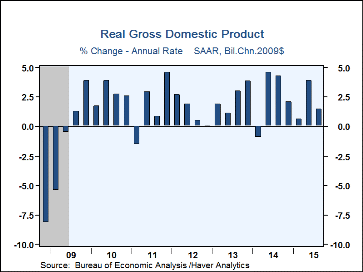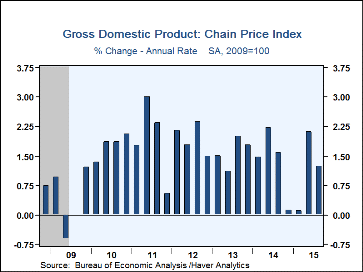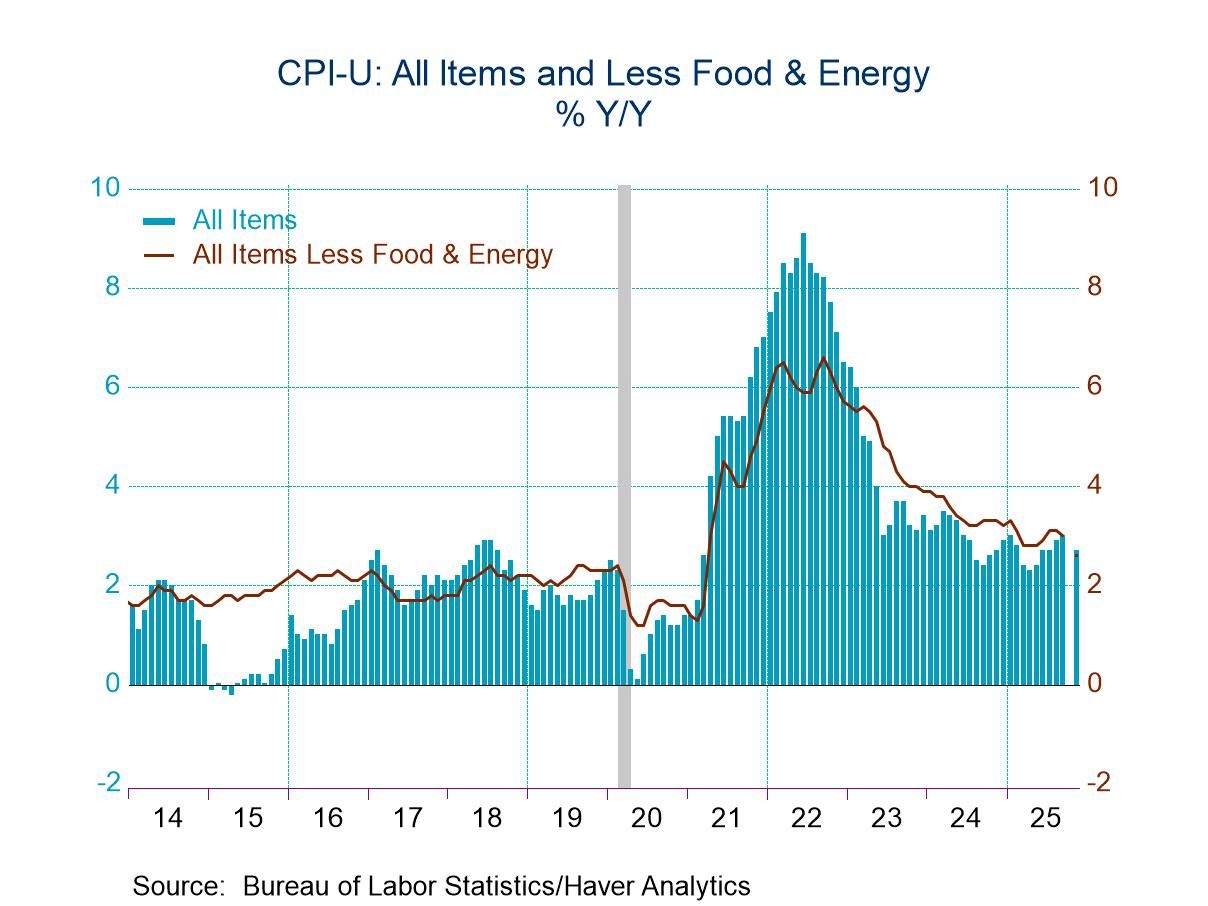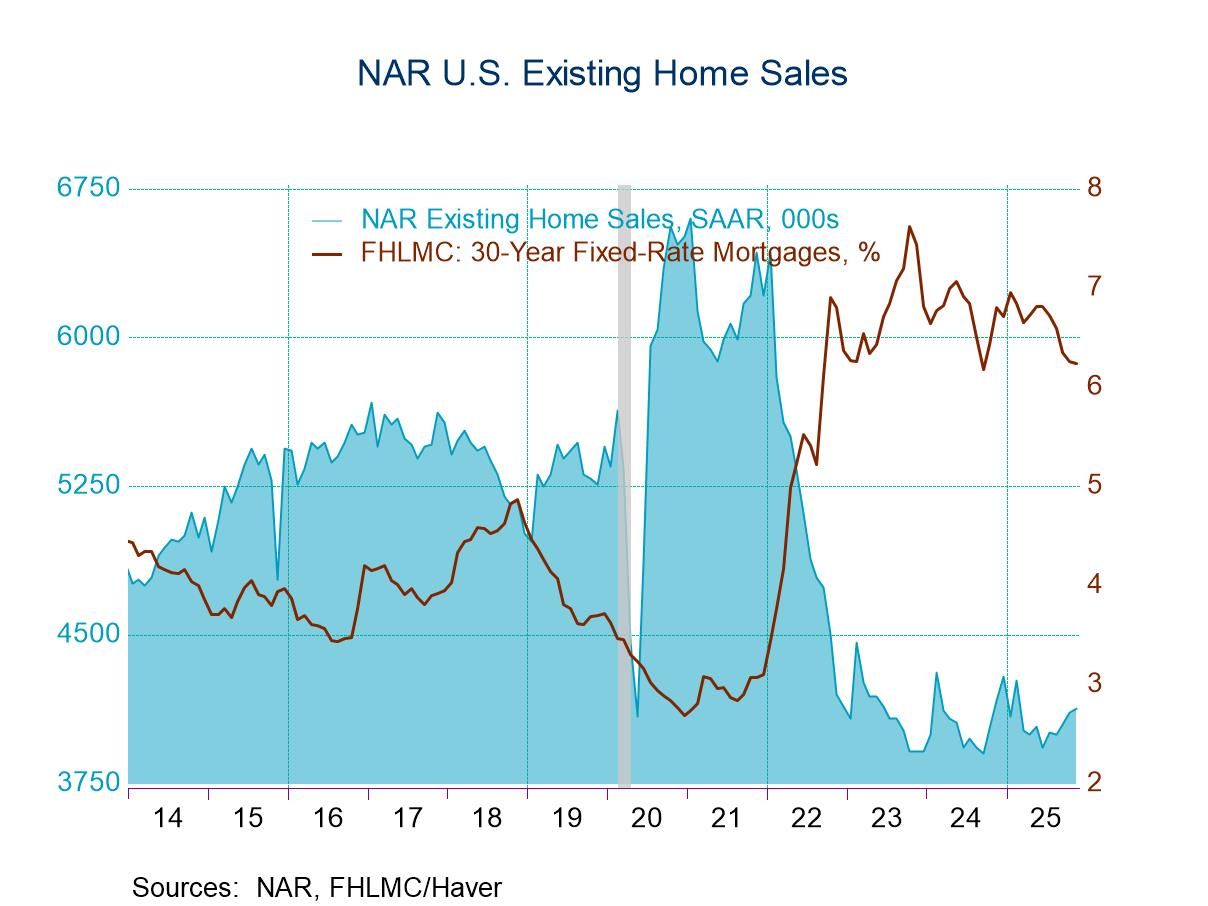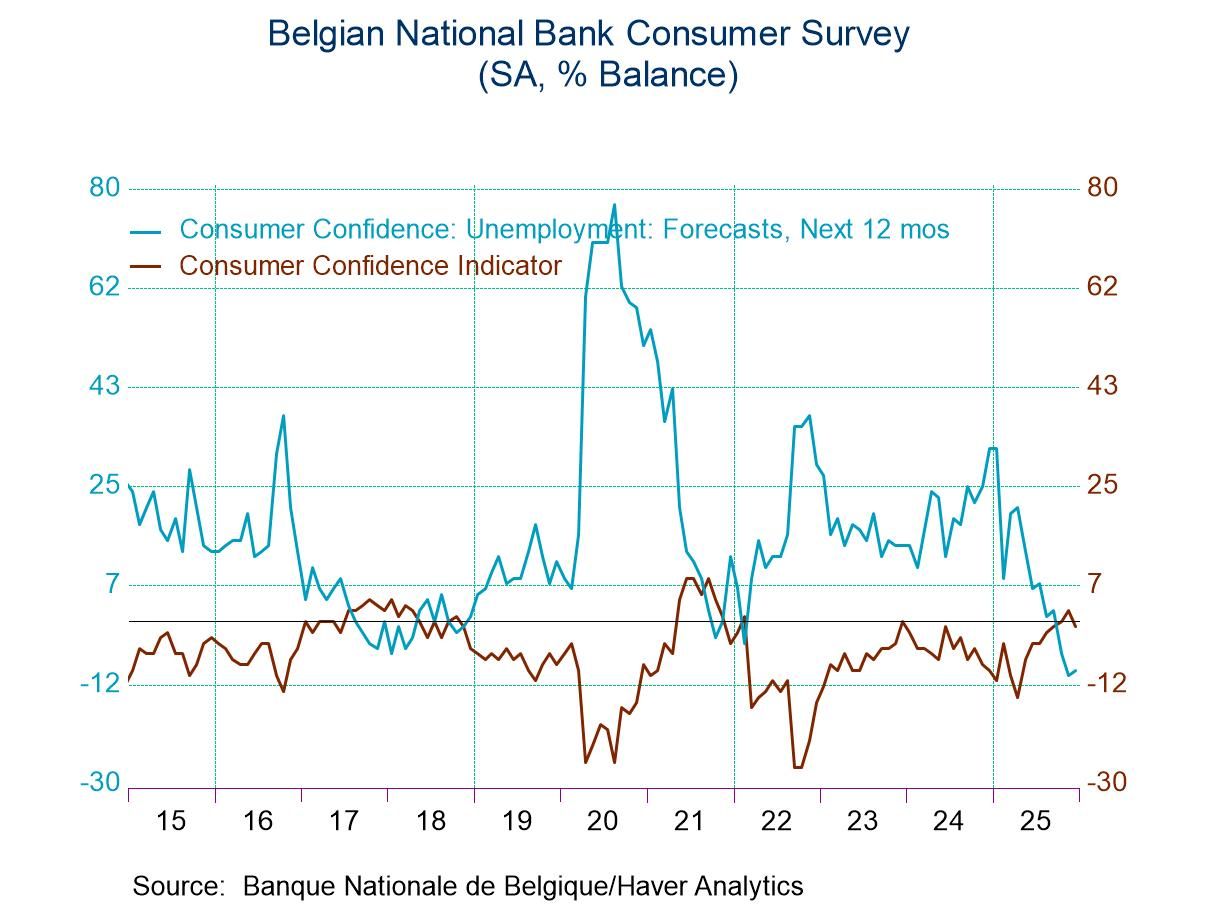 Global| Oct 29 2015
Global| Oct 29 2015U.S. GDP Growth is Reduced by Inventory Decumulation
by:Tom Moeller
|in:Economy in Brief
Summary
The economy grew 1.5% (AR) last quarter following a 3.9% Q2 increase. The shedding of inventories sapped 1.4 percentage points from growth, reversing accumulation during the prior six months. Inventory decumulation came as final [...]
The economy grew 1.5% (AR) last quarter following a 3.9% Q2 increase. The shedding of inventories sapped 1.4 percentage points from growth, reversing accumulation during the prior six months. Inventory decumulation came as final demand growth eased to 3.0% from a 3.9% advance in Q2. A 1.7% rise in GDP had been expected in the Action Economics Forecast Survey. Lack of pricing power provided incentive to limit inventory accumulation. The GDP chain price index rose 1.2%, down from 1.9% in Q2.
The GDP figures can be found in Haver's USECON and USNA databases; USNA contains virtually all of the Bureau of Economic Analysis' detail in the national accounts, including the integrated economic accounts and the recently added GDP data for U.S. Territories. The Action Economics consensus estimates can be found in AS1REPNA.
| Chained 2009 $ (%, AR) | Q3'15 (Advance Estimate) | Q2'15 | Q1'15 | Q3 Y/Y | 2014 | 2013 | 2012 |
|---|---|---|---|---|---|---|---|
| Gross Domestic Product | 1.5 | 3.9 | 0.6 | 2.0 | 2.4 | 1.5 | 2.2 |
| Inventory Effect | -1.4 | 0.0 | 0.9 | 0.2 | 0.0 | 0.1 | 0.1 |
| Final Sales | 3.0 | 3.9 | -0.2 | 2.2 | 2.4 | 1.4 | 2.1 |
| Foreign Trade Effect | -0.0 | 0.2 | -1.9 | -0.6 | -0.1 | 0.2 | 0.2 |
| Domestic Final Sales | 2.9 | 3.7 | 1.7 | 2.8 | 2.5 | 1.2 | 1.9 |
| Demand Components | |||||||
| Personal Consumption Expenditures | 3.2 | 3.6 | 1.7 | 3.2 | 2.7 | 1.7 | 1.5 |
| Business Fixed Investment | 2.1 | 4.1 | 1.6 | 2.1 | 6.2 | 3.0 | 9.0 |
| Residential Investment | 6.1 | 9.4 | 10.1 | 8.9 | 1.8 | 9.5 | 13.5 |
| Government Spending | 1.7 | 2.6 | -0.1 | 0.7 | -0.6 | -2.9 | -1.9 |
| Chain-Type Price Index | |||||||
| GDP | 1.2 | 2.1 | 0.1 | 0.9 | 1.6 | 1.6 | 1.8 |
| Personal Consumption Expenditures | 1.2 | 2.2 | -1.9 | 0.3 | 1.4 | 1.4 | 1.8 |
| Less Food/Energy | 1.3 | 1.9 | 1.0 | 1.3 | 1.5 | 1.5 | 1.9 |
Tom Moeller
AuthorMore in Author Profile »Prior to joining Haver Analytics in 2000, Mr. Moeller worked as the Economist at Chancellor Capital Management from 1985 to 1999. There, he developed comprehensive economic forecasts and interpreted economic data for equity and fixed income portfolio managers. Also at Chancellor, Mr. Moeller worked as an equity analyst and was responsible for researching and rating companies in the economically sensitive automobile and housing industries for investment in Chancellor’s equity portfolio. Prior to joining Chancellor, Mr. Moeller was an Economist at Citibank from 1979 to 1984. He also analyzed pricing behavior in the metals industry for the Council on Wage and Price Stability in Washington, D.C. In 1999, Mr. Moeller received the award for most accurate forecast from the Forecasters' Club of New York. From 1990 to 1992 he was President of the New York Association for Business Economists. Mr. Moeller earned an M.B.A. in Finance from Fordham University, where he graduated in 1987. He holds a Bachelor of Arts in Economics from George Washington University.


